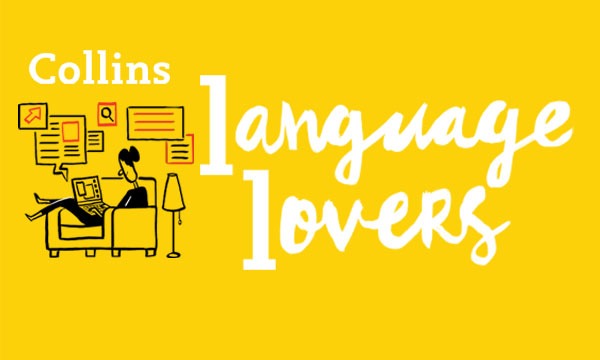Dinna fash, sassenach. With those three little words, a thousand Google searches were launched. The sizzling romance between Jamie and Claire from Diana Gabaldon’s bestselling Outlander series have had people glued to their screens for almost 10 years.
The hit show has helped fuel an increase in people wanting to learn more about the Gaelic and Scots languages: 1.5 million have subscribed to the Scottish Gaelic course on Duolingo since its launch in 2019, and recent years have seen an upsurge in interest in Scots language and culture on social media. With season 7 landing this month, we felt it was the perfect opportunity to refresh ourselves on some of the essential Scottish words from Outlander.
Bannock
First up, a taste of the 18th century with a bannock. A popular foodstuff in this period, a bannock is essentially a Scottish oatcake, a round flat unsweetened cake made of oatmeal or barley and baked on a griddle. Coming from the Old English bannuc, bannocks were recorded in a contemporary source as being the ‘ordinary bread of the gentry’ in Scotland.
Braw
In Outlander, there’s no shortage of braw men ready to fight for what they believe in. A 16th-century Scottish variant of the word brave, braw can also mean fine or excellent, especially in one’s appearance or the way a person is dressed. A famous example of this usage can be seen in the title of a song by the famous Scottish poet Robert Burns, Braw Lads O’ Galla Water.
Bonny
Bonny, sometimes spelled as bonnie, is another complimentary adjective, meaning beautiful or handsome, and perhaps most famously attributed to Charles Edward Stuart: Bonnie Prince Charlie. The origin of this one is uncertain, but it’s been suggested that it comes from the French bonne, meaning good. The word is still widely used in modern-day Scotland and Northern England: for instance, when describing ‘bonny wee bairns’ (cute little children), or even when referring to ‘Bonnie Scotland’ itself.
Dinna fash
We couldn’t possibly exclude this phrase from our list of essential Outlander vocabulary. One of the oft-repeated phrases in the show, ‘dinna fash’ is a reassuring way of essentially saying ‘don’t worry’. Fash originates from the French word fâcher, meaning to upset, annoy, or otherwise vex. And dinna is pretty self-explanatory, it means ‘don’t’.
Dirk
In 18th-century Scotland, you wouldn’t want to be caught without your dirk. A long, straight dagger, a dirk was a popular weapon of choice for Scottish Highlanders of the time. A smaller version of the dirk, the sgian-dhu, is still sometimes worn by those wearing Highland dress on special occasions.
Gomerel
Looking for a new way to insult somebody? Look no further. Gomerel is a Scots word meaning an idiot or a foolish person. While it isn’t necessarily a gendered insult, the fragment gome comes from the Middle English gōme, meaning man, warrior, or male servant.
Greet
‘Greeting’ isn’t necessarily a warm welcome or a hello. In Scots, if you were to refer to someone greeting, it means that someone is crying. Both meanings of ‘greet’ are thought to come from the Old English, grētan, which can either mean ‘to come into contact with, to address’ or ‘to weep, to lament’. The root of grētan can itself be traced back to the Proto-Indo-European *ghredh, which means ‘to resound’ or ‘to call on’.
Jacobite
When WWII nurse Claire Beauchamp Randall Fraser finds herself mysteriously sent back to 18th-century Scotland after innocently collecting plants on her honeymoon, she has a lot to learn. Perhaps most importantly, she needs to understand the political climate, and specifically the Jacobite movement of the time. A Jacobite in this period refers to those people loyal to King James II, a Stuart king who was considered to be the true heir to the throne of England, Scotland and Ireland, who was deposed in favour of his sister Mary.
Ken
If you’re unfamiliar with Outlander, or the Scots language, you might be surprised by how many people seem to refer to ‘Ken’. If a Scottish person asks if you ‘ken’ something, they’re asking if you know something. It is often used as a tag question at the end of a sentence, (Ah widnae say naw, ken?) or a hedging word mid-sentence (There’s some of the lads, ye ken, who think we should go down.).
Laird
If you’ve read historical fiction in the past, you’re probably familiar with lords and ladies. In early modern Scotland, it’s lairds and ladies. The difference is that in Scotland, you don’t need to be part of the aristocracy to be a laird, all you need is to own a large area of land in Scotland. That’s why Colum, the Chieftain of the MacKenzie Clan in Outlander, is called a laird despite not being a nobleman.
Sassenach
From the day that she first landed in 18th-century Scotland, Claire has been called a ‘Sassenach’. Sassenach is used to describe an English person or an English speaker, and the term can be used slightly pejoratively by some. The word is derived from the Gaelic Sasannach, which means English person or Saxon. Over the course of the series, Jamie continues to call Claire a Sassenach, but as an affectionate in-joke.
Love learning new vocabulary from TV shows? We highly recommend you read our essential House of the Dragon glossary or the totally rad guide to Stranger Things slang. Or if you’re curious about the impact of Celtic languages on English, have a look at our blog about some of the Gaelic words in the Collins English Dictionary.
By Rachel Quin
Rachel Quin is a freelance marketer and copywriter with a love of language, books and cats.
All opinions expressed on this blog are those of the individual writers, and do not necessarily reflect the opinions or policies of Collins, or its parent company, HarperCollins.



